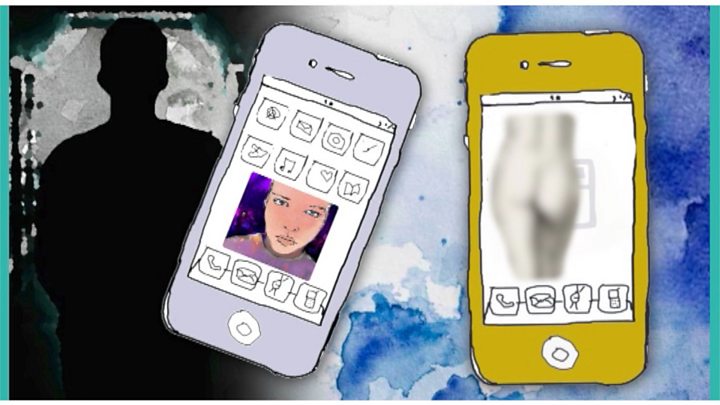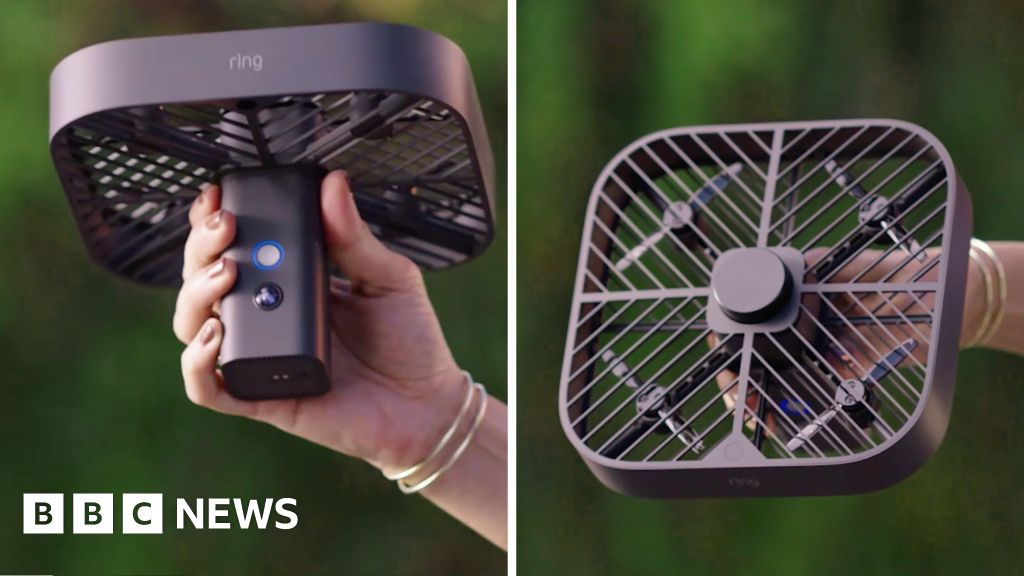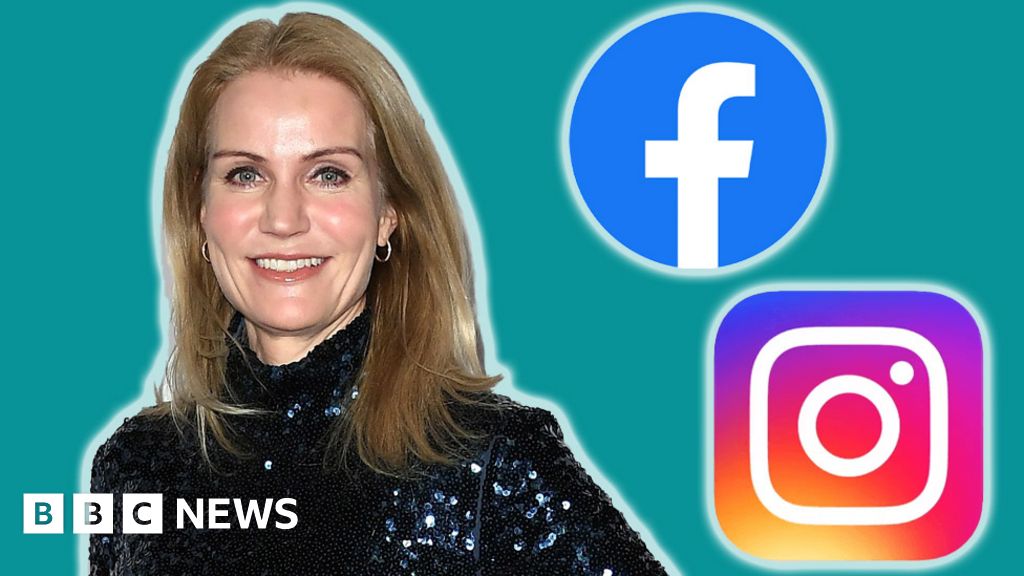
Media playback is unsupported on your device
"He's threatened to share those pictures with my friends unless I send him more."
Mia, 13, was duped into sending sexual photographs to someone she met online, who she has now found out is an adult posing as someone else.
Charities including the NSPCC and Meic - a helpline for younger people in Wales - are concerned more young people are sharing naked images of themselves.
They both said staff have seen an increase since lockdown.
"Many young people want to send them because it has been normalised in terms of social media," said Sabiha Azad, who works on Meic's helpline for children and young people.
"Young people are at home alone and wanting intimacy and don't know how to explore it healthily, so they're being pressured into sending things," she said.
"You can even get girls sending pictures on to their friends first to check if they look OK, or boys sharing the photos they get sent with others to compare them."
The charities believe a significant increase in the time teenagers are spending online and a lack of face-to-face interaction has added to the pressure.
Image copyright Getty Images Image caption Youngsters have been urged to speak to someone about any problems they encounterMs Azad added: "Speaking about the consequences is so important because this is the time that they can be exploited."
The charities said most cases were believed to involve 14 to 16-year-olds, with a lot of people cropping out their heads from photographs.
However, Ms Azad said they often forget about other identifiable markers such as wallpaper, birth marks or piercings.
Being pressured to send nudes is a sign of a controlling relationship and, despite campaigns to tackle this during lockdown, Ms Azad believes many risks to younger people - such as being blackmailed and threatened - have been overlooked.
"I think there's a danger of forgetting young people, especially during the pandemic," she added.
"I think that girls definitely see the repercussions of sending nudes more, they're much more likely to be referred to specialist services for support. One person developed an eating disorder following her image being shared because of the negative comments people made.
"It's a very intimate image being shared and it may be shared to your family members. It often goes through schools, so everyone in that year group will probably see it, if not more."
Image copyright Getty Images Image caption Smart phones and iPads have made it easier for people to share imagesMia (not her real name) contacted ChildLine after she met her blackmailer on Instagram and developed an online relationship with him.
"He convinced me to send pictures of myself which were sexual," she said.
"Now he's threatened to share those pictures with my friends unless I send him more."
Mia said she was too scared to tell her mum in case she got into trouble.
Another victim, Chloe (not her real name), 14, met "a good-looking boy" on a teenage dating app who made her feel special while she was having a tough time at home.
When he started asking for nude photos, she said she "agreed as a joke to talk dirty instead".
Image copyright Getty Images Image caption Youngsters are meeting people in chat rooms who are adults posing as childrenBut when she became uncomfortable, she blocked him, only for him to get in touch on another app, threatening to publish her profile picture next to the dirty messages.
"I feel so guilty and disgusted for leading him on," she said.
"He made me feel special when no-one else did.
"I don't want anyone to find out, after all most of it was my fault. I don't know what to do and I feel so guilty."
'Catch-22 situation'
It is illegal for under-18s to send or receive nudes, with NSPCC Cymru's Lucy O'Callaghan saying prevention was vital to tackle the issue.
"Once a young person has sent a sexual image, it's out of their control," she said.
"Whilst they're in a relationship, their boyfriend or girlfriend might promise not to send the image onwards, but sometimes when that relationship breaks down the other young person can share it and that might lead to it being shared again and again.
"Then that can lead to bullying from from other young people. Sometimes when young people send one image, they can experience blackmail to send further images. So they can find themselves in a sort of a kind of a catch-22 situation."
She urged young people to seek support from an adult.
Children and young people can speak with a ChildLine counsellor online or on the phone between 09:00 and midnight on 0800 11 11 You can also contact Meic in an online chat, call them on 080880 23456 or text 84001 between 08:00 and midnight
 5 years ago
1063
5 years ago
1063 

